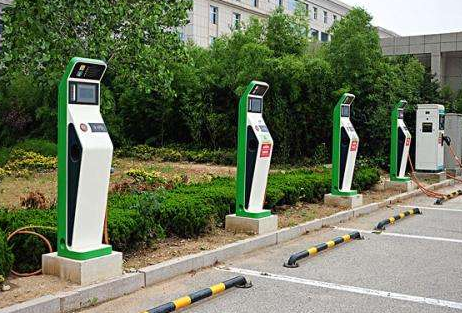BEIJING, Nov. 29 (Xinhua) -- Suqian City in east China's Jiangsu Province has strived to promote green and low-carbon travel in recent years, accelerating the construction of charging infrastructure for new energy vehicles and continuously improving the urban and rural charging service network.
Up to now, the city has constructed over 430 charging stations and more than 2,400 charging piles, achieving full coverage in express service areas and rural areas.
Ba Xiaoyu, director of the marketing department of the State Grid Suqian Power Supply Company introduced that in 2022, Suqian City completed the construction of its first shared charging community, effectively enhancing the convenience of residential area charging.
To further broaden and extend the sense of happiness and satisfaction for new energy vehicle owners, in April of this year, Suqian took the lead in issuing the plan on the construction of new energy vehicle charging infrastructure in government departments, enterprises and public institutions.
The State Grid Suqian Power Supply Company actively coordinated with enterprises and public institutions, promoting the planning and construction of electric vehicle-specific parking spaces and charging facilities.
Ba noted that promoting the construction of electric vehicle charging facilities in enterprises and public institutions allows everyone to charge their vehicles during the day and return home fully charged after work.
According to Ba, on the one hand, this move solves the problem of tight charging resources in old residential areas. On the other hand, for the power grid, it can reduce the pressure on the grid caused by the concentrated charging of new energy vehicles during the evening peak. In addition, charging during the day can maximize the consumption of photovoltaic and other new energy sources, realizing the use of new energy for new energy vehicles.
At Jiangsu Huiran Industrial Co., Ltd., a company representative said that nowadays, more and more employees of the company are driving electric vehicles. At the end of June this year, the company built six charging piles, further meeting the charging needs of employees.
It is reported that since the implementation of the plan, 51 charging facilities have been built by various enterprises and public institutions in the city, including 63 AC charging piles and 173 DC charging piles, with a total charging power of 10,700 kilowatts.
This year, the city saw its total charging capacity reach over 47 million kWh, a surge of 49 percent year on year. (Edited by Yang Yifan with Xinhua Silk Road, yangyifan@xinhua.org)




 A single purchase
A single purchase









